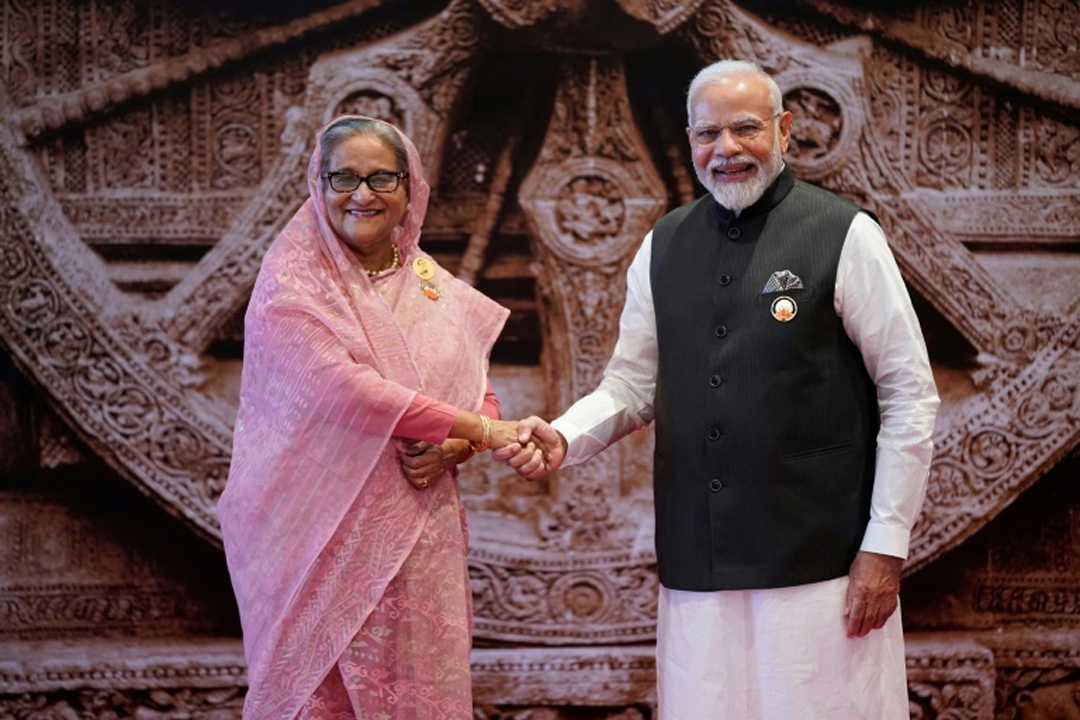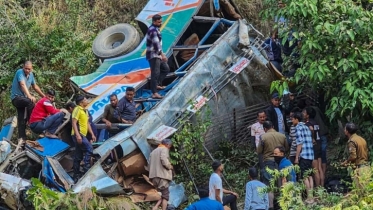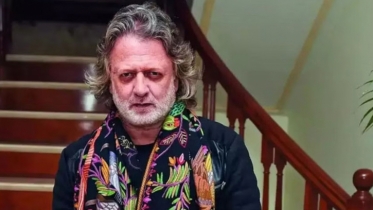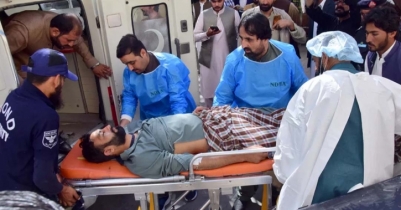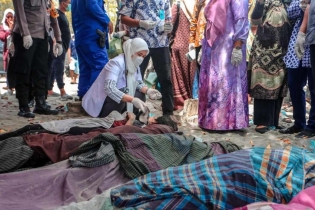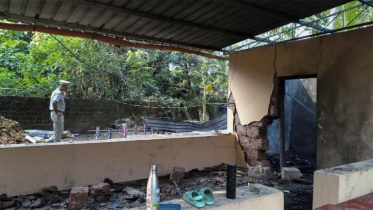India’s Prime Minister Narendra Modi shakes hands with Sheikh Hasina, then Bangladesh’s premier, before their official talks in New Delhi last year.
Four weeks after ex-premier Sheikh Hasina fled Bangladesh by helicopter during a student-led revolution, analysts say she has become a diplomatic headache for her hosts in India.
Hasina’s iron-fisted tenure came to an end last month as protesters marched on her palace in Dhaka after 15 years characterised by rights abuses and opposition crackdowns.
Bangladeshi students who led the uprising are demanding she return from India, her biggest benefactor before her ouster, to be tried for the killing of protesters during the revolt.
But sending the 76-year-old back risks undermining India’s standing with its other neighbours in South Asia, where it is waging a fierce battle for influence with China.
“India is clearly not going to want to extradite her back to Bangladesh,” said Thomas Kean of the conflict resolution think-tank International Crisis Group.
“The message that would send to other leaders in the region who are close to New Delhi would not be a very positive one … that ultimately, India will not protect you,” he told AFP.
‘Want a good relationship’
New Delhi last year saw its preferred presidential candidate in the Maldives lose to a rival that immediately tilted the strategically placed luxury tourism destination towards Beijing.
Hasina’s toppling lost India its closest ally in the region.
Those who suffered under Hasina in Bangladesh are openly hostile to India for the abuses committed by her government.
That hostility has smouldered through megaphone diplomacy waged by Hindu-nationalist Indian Prime Minister Narendra Modi and directed towards Bangladesh’s caretaker administration.
Modi has pledged support for the government that replaced Hasina, led by 84-year-old Nobel Peace Prize laureate Muhummad Yunus.
But Modi, who has made championing the Hindu faith a key plank of his tenure, has also repeatedly urged Yunus’s administration to protect Bangladesh’s Hindu religious minority.
Hasina’s Awami League was considered to be more protective of Bangladesh’s Hindu minority than the Bangladesh Nationalist Party (BNP).
Modi used his annual Independence Day address from atop the 17th century Red Fort to suggest Bangladeshi Hindus were in danger and later raised the matter with US President Joe Biden.
Some Bangladeshi Hindus and Hindu temples were targeted in the chaos that followed Hasina’s departure in attacks that were condemned by student leaders and the interim government.
But wildly exaggerated accounts of the violence were later reported by pro-government Indian news channels and sparked protests by Hindu activist groups loosely affiliated with Modi’s party.
Fakhrul Islam Alamgir, a top leader of the BNP, said India had put “all its fruit in one basket” by backing Hasina and did not know how to reverse course.
“The people of Bangladesh want a good relationship with India, but not at the cost of their interests,” Alamgir, one of thousands of BNP members arrested during Hasina’s tenure, told AFP.
“The attitude of India unfortunately is not conducive to creating confidence.”
‘Sheltering the autocrat’
Such is the atmosphere of distrust, when deadly floods washed through both countries in August some Bangladeshis blamed India for the deaths that resulted.
Bangladesh’s interim government has not publicly raised the issue of Hasina taking refuge in India with New Delhi — her last official whereabouts is a military airbase near the capital — but Dhaka has revoked her diplomatic passport, preventing her from travelling onwards.
The countries have a bilateral extradition treaty first signed in 2013 which would permit her return to face criminal trial.
A clause in the treaty, however, says extradition might be refused if the offence is of a “political character”.
India’s former ambassador to Bangladesh, Pinak Ranjan Chakravarty, said that the bilateral relationship is too important for Dhaka to sour it by pressing for Hasina’s return.
“Any mature government will realise that making an issue out of Hasina staying in India is not going to give them any benefits,” he told AFP.

